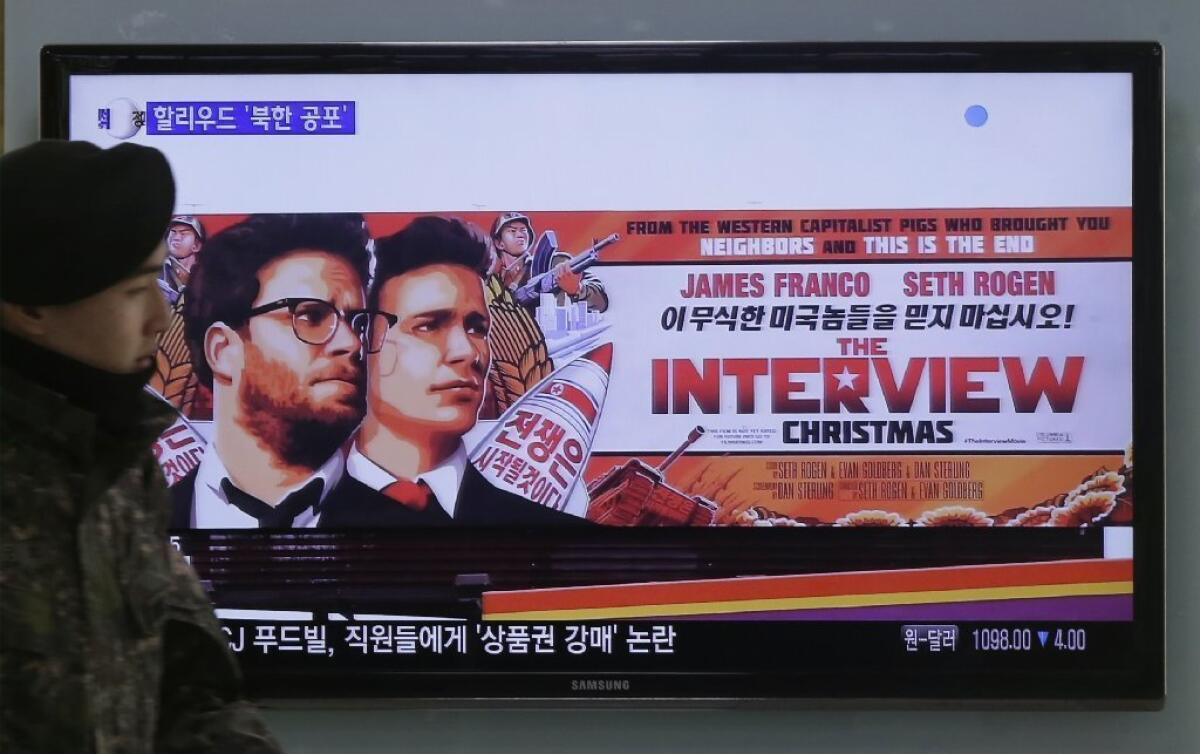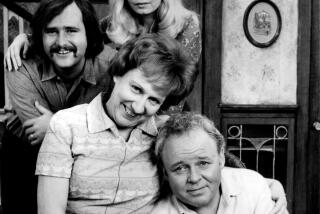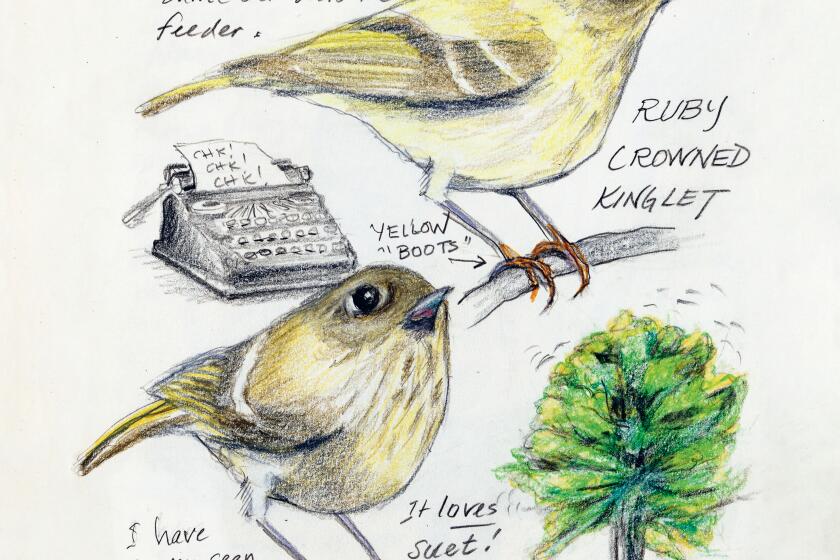Opinion: A little Sony comedy, a fleeting Manson story -- both huge now, because of principle

It wasn’t the Pentagon papers, by a long shot. It was a smallish story about a big case -- the Manson murders.
Bill Farr was a reporter at the Los Angeles Herald-Examiner covering the Charles Manson murder case in 1970 when officers of the court, in violation of a gag order, slipped him information from a prospective witness about Manson’s supposed plan to flay Frank Sinatra alive, gouge out Elizabeth Taylor’s eyes and cut off Richard Burton’s penis.
As news, the story was a short, gory sensation, but there’s another reason it resonates even now. Farr, following journalistic principle, steadfastly refused to give up his confidential sources to a judge, spent 46 days in jail and in 1980, because of what he did -- or rather didn’t do -- California voters enshrined the reporter shield law in the state Constitution.
I bring this up because of “The Interview,” the Sony Pictures bro comedy that was first deep-sixed after North Korean hackers threatened moviegoers and spilled Sony’s email guts and a few of its films all over the Internet. [The film has now been resurrected for limited release.]
“The Interview” is, by accounts of reviewers, a bit of “laddish,” adolescent humor threaded through with a few strands of political satire. That’s a pretty flimsy vehicle to be suddenly carrying the freighted burden of a national debate.
Yet principle is principle. In Bill Farr’s case, a landmark constitutional amendment got made because of a gruesome sidebar to the Manson murder case -- and a committed journalist. As a means of getting a reporter shield protection enshrined into law, it wasn’t as policy-shaking as, say, a major national security revelation -- but it did the job.
The point is, serendipitous events can trump planning; a cause can’t always choose the means, only the destination. The intended 1978 Skokie, Ill., neo-Nazi march was repugnant, “Jane Roe,” of the 1973 Roe vs. Wade ruling, was inconstant, but through each, free speech and pro-choice rights were clarified and defined.
And so we have “The Interview,” a trifling little movie that we thought would never get seen, as a new touchstone of reference any time we sit down to talk seriously about free expression in a free society.
Follow Patt Morrison on Twitter @pattmlatimes
More to Read
A cure for the common opinion
Get thought-provoking perspectives with our weekly newsletter.
You may occasionally receive promotional content from the Los Angeles Times.







